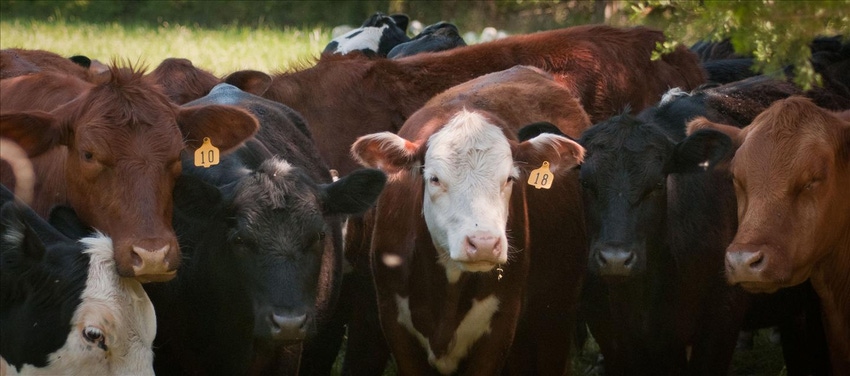Court grants R-CALF USA's beef checkoff case expansion
NCBA said efforts to diminish checkoffs in 13 states will shrink beef demand and create more government involvement.

The federal district court in Montana granted R-CALF USA's motion to expand its beef checkoff program lawsuit against the U.S. Department of Agriculture to include at least 13 states in addition to Montana. The National Cattlemen’s Beef Assn. (NCBA) said the action is a “disappointment to countless beef producers and NCBA members across America.”
The district court in Montana previously granted, and the appellate court recently upheld, a preliminary injunction temporarily stopping USDA from what the court ruled was a violation of the U.S. Constitution by compelling cattle producers in Montana to pay for the private speech of the private Montana Beef Council without first obtaining consent from producers.
R-CALF USA brought the original challenge in Montana over concerns that Montana beef producers were paying, through their checkoff advertisements, for Wendy’s, which also used Canadian beef and not just U.S. beef. Montana’s checkoff funds have diminished considerably since the ruling. In a typical year, $800,000 would stay in Montana, but in 2017, only a fraction of that stayed in the power of the Montana Beef Council, with only $150,000 in checkoff dollars coming in.
R-CALF USA requested that the court expand the case to include additional states in which the group said producers are similarly required to pay for the private speech of their respective private beef councils without their consent.
Monday’s ruling on R-CALF USA's motion does not apply the temporary injunction in effect in Montana to the additional states. Instead, it allows R-CALF USA to proceed with its original case in which it seeks a permanent injunction against USDA, which mandates government speech. If successful, the permanent injunction would likely cover cattle producers in each of the new states, R-CALF said.
R-CALF USA chief executive officer Bill Bullard added that if R-CALF USA's lawsuit is successful, cattle producers in Hawaii, Indiana, Kansas, Montana, Nebraska, Nevada, New York, North Carolina, Pennsylvania, South Carolina, South Dakota, Texas, Vermont and Wisconsin will all be required to sign a form to return money to their states. The national checkoff requires $1 per head to be sent to the Cattlemen’s Beef Board (CBB). Only by signing a form and tracking sales does the typically state-funneled 50 cents return to the state if the ruling moves forward as it did in Montana.
The court granted USDA 14 days to file an answer to R-CALF USA's complaint, and the case now will proceed with the additional states.
Bullard said the state beef councils have been sending about $10 million in checkoff funds each year directly to NCBA.
"By redirecting their money to the CBB rather than to their state beef councils, cattle producers can reduce the amount of money now flowing to the NCBA under the group's pay-to-play scheme, which we believe is a form of money laundering," Bullard claimed.
NCBA was quick to defend the use of checkoff funds and the goals of the litigation. “The phony allegations being perpetuated by R-CALF and its activist legal partners are without merit and only serve to divide beef producers and distract beef councils from the important work of building demand for our products,” NCBA said in a statement.
“The simple fact is that regular audits of the beef checkoff and NCBA have found both to be compliant with the laws governing the checkoff. Two audits conducted by USDA’s Office of the Inspector General have also come back clean. R-CALF’s accusations to the contrary are false,” NCBA CEO Kendal Frazier said. “R-CALF has become nothing more than a front group for activists seeking to divide the industry, lessen beef demand and drive producers out of business.”
Accusations that dollars invested in the Federation of State Beef Councils are being misused are equally false, NCBA added. The organization said it has a long-standing commitment to the beef checkoff and the state beef councils, whose collections and demand-building work predate the federal checkoff.
“NCBA is firm in its commitment to defend both the checkoff and state beef councils against outside attacks. The volunteer [cattle producers] who serve on state beef council boards are committed to improving the beef business and demand for our products, and they do not deserve the attacks being leveled by these activist groups,” NCBA noted in its statement.
Attorneys for R-CALF USA include lead counsel David Muraskin, a food project attorney at Public Justice; J. Dudley Butler of the Farm & Ranch Law Group, and Bill Rossbach of Rossbach Law PC in Missoula, Mont. NCBA claims that these attacks by R-CALF USA are being aided by allies at The Humane Society of the United States, Food & Water Watch, Public Justice and other activist organizations that stand against cattle producers.
“These groups know that beef demand is increasing in the United States and abroad, in part due to work funded by the checkoff. These achievements make the beef checkoff and other agriculture industry self-help mechanisms a target for organizations and individuals driving a vegetarian agenda,” NCBA said.
Frazier added, “It’s unfortunate that R-CALF has chosen to become a puppet in the war being waged by animal rights activists and the vegetarians seeking to drive beef producers out of business. Let’s be clear, though: The groups aligning with R-CALF are choosing a future with shrinking beef demand, less opportunity and more government involvement. That’s not the future NCBA members choose, so we will defend the beef checkoff and cattle producers against these attacks.”
About the Author(s)
You May Also Like





